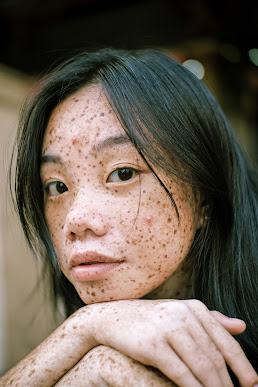Do you know what is the largest organ of the human body? Yes, it is skin and it weighs approximately 15% of our total body weight. Learning more about the peculiarities of your skin is very important for a healthy body, so let's dive in!
The skin is an organ because it consists of several tissues and cells with different and specific functions. It is a body of protection, guest posts, and changes depending on age, internal health, and external factors. Due to its specificity in different areas of the same body, the skin is a sensitive, changing organ. Since the skin around the eyes is made up of a thinner layer of the epidermis, it needs different care than, for example, the skin on the legs.
Skin structure
There are three main types of skin layers: the epidermis, the dermis, and the subcutaneous layer. The epidermis, the outer layer, contains cells that produce pigment (skin color/shade) and protect the immune system.
The dermis, the middle layer, contains connective tissue, capillaries, nerve tissue, and hair follicles. It also contains sweat glands and the body's sebaceous glands (sebum). The subcutaneous layer is the innermost layer of the skin and contains large blood vessels, nerves, fat and connective tissue. It regulates body temperature and protects internal organs and muscles from harmful influences. It also produces the hormone leptin, which stabilizes the metabolism. Now that we understand how important the skin is to our survival, let's see what are the negative factors that affect the health of the skin and thus our overall health.
Internal negative factors
Internal factors that can affect the health and appearance of your skin include genetics, hormones, and diseases such as diabetes. Genes determine our skin type and aging process, so there is nothing we can do about it, except to limit the factors that would aggravate the predisposition of our genes. Genes can influence cell regeneration and biological aging; they can also determine how our oil and sweat glands work.
A change in hormones can cause acne, especially during puberty or menstruation in women. A woman's estrogen decreases after menopause, so the skin's natural moisturizing function also decreases.
Some serious internal diseases can manifest themselves at the skin level, such as diabetes, cancer, and most often liver problems - intoxication or bile disorder. Liver problems manifest as either skin rashes or yellowish skin pigmentation. Thus, in many cultures, there is an old mentality that glowing smooth skin indicates a healthy body inside. What you eat is what you are and it shows on your skin, so a healthy diet rich in vitamins is a must for healthier skin. Other internal factors that can affect the skin are serious medical procedures such as chemotherapy. Some viruses affect the skin with eruptions, such as chicken pox and variola viruses.
External negative factors
Extrinsic negative factors are the most familiar among people because we hear about them in TV commercials and they are very visible at the skin level. The most common negative external factors for the skin are:
Sunburn/UV radiation
Excessive spray or fake tan
Sudden temperature change
Chemical products
Excessive washing
Smoking
Common skin conditions
Are you depressed because of acne or depigmentation? You should know that acne and depigmentation are one of the most common skin conditions. Acne affects more than 50 million Americans each year, according to statistics from the American Academy of Dermatology Association. Atopic dermatitis affects 1 in 10 people in their lifetime. According to Medline Plus, the National Library of Medicine, hair loss affects 50 million men and 30 million women. Rosacea, or facial redness, affects up to 16 million Americans, over the age of 30. Vitiligo, another very common disease, manifesting as depigmentation or white spots on the surface of the skin, affects more than 70 million people worldwide. All these skin conditions are often related to external negative factors and improper nutritional care.
The skin is a sensitive and complex organ that requires intensive care. It is a beautiful part of our body and hides even more wonders.
10 Bizarre Things You Should Know About Your Skin
It is renewed every 28 days;
About 50% of the dust in your home is dead skin;
The growth rate of body hair is 2 to 6 years;
The thickest skin is on the feet;
The thinnest skin is on the eyelids;
We lose around 20-100 hairs a day;
Scars do not have hair and sweat glands;
Sweat doesn't smell, but the bacteria in it does.
The skin has 1000 species of bacteria;
In children, skin tone develops in 6 months.
The human body deserves care and respect, including the skin. This means we have to be careful about what we eat and what we expose ourselves to, from stressful environments to weather conditions. Remember that health care is a modus vivendi.

Comments
Post a Comment